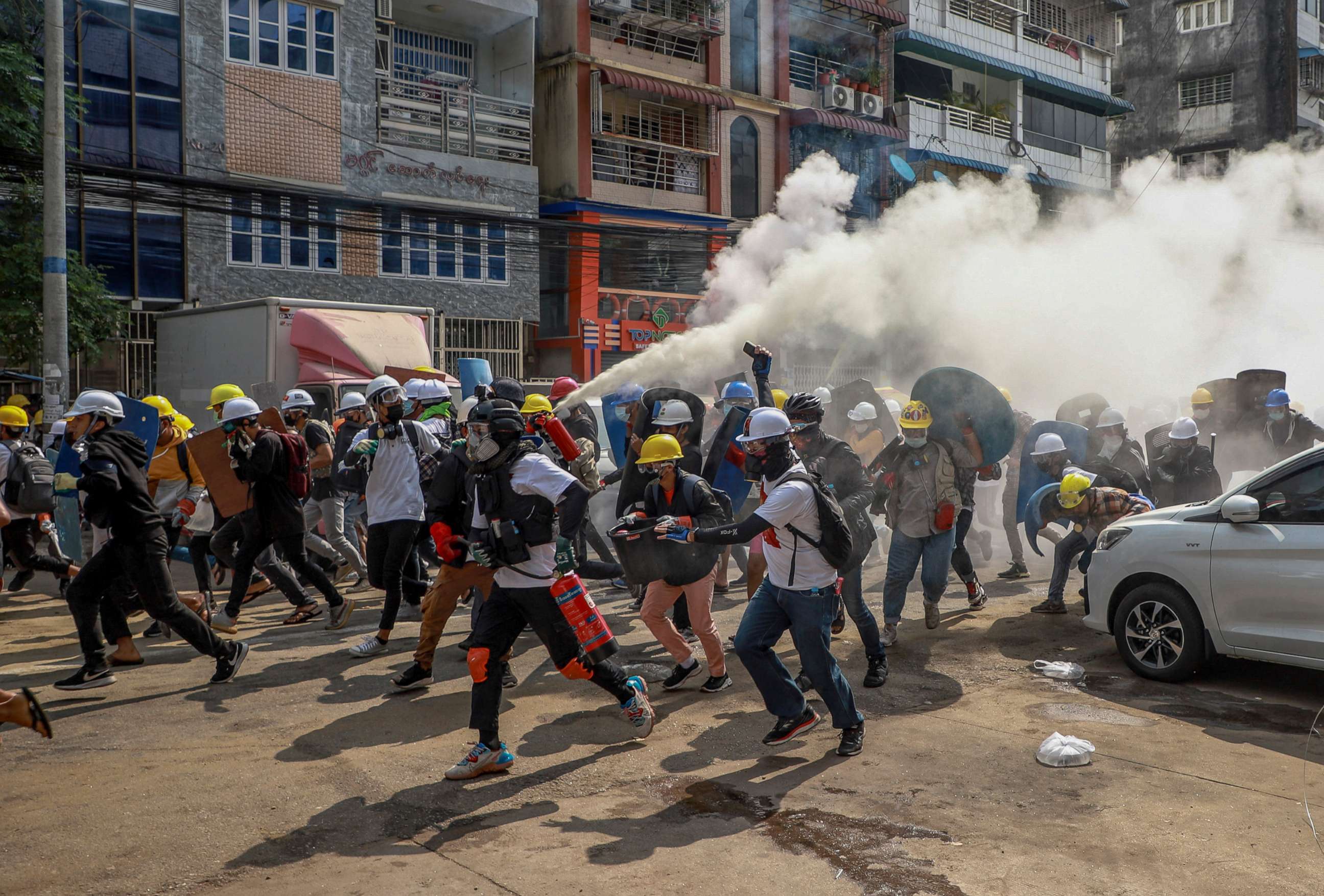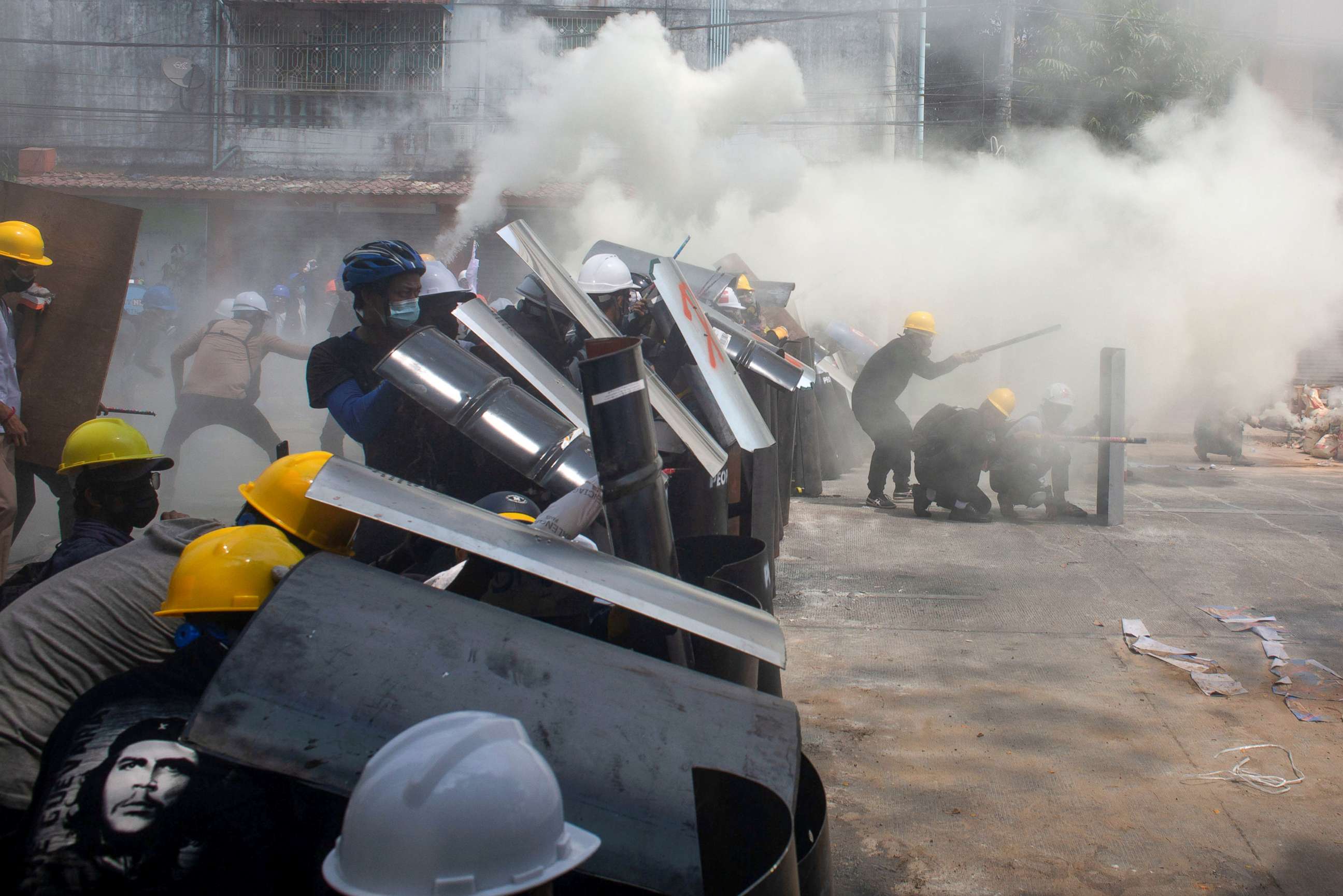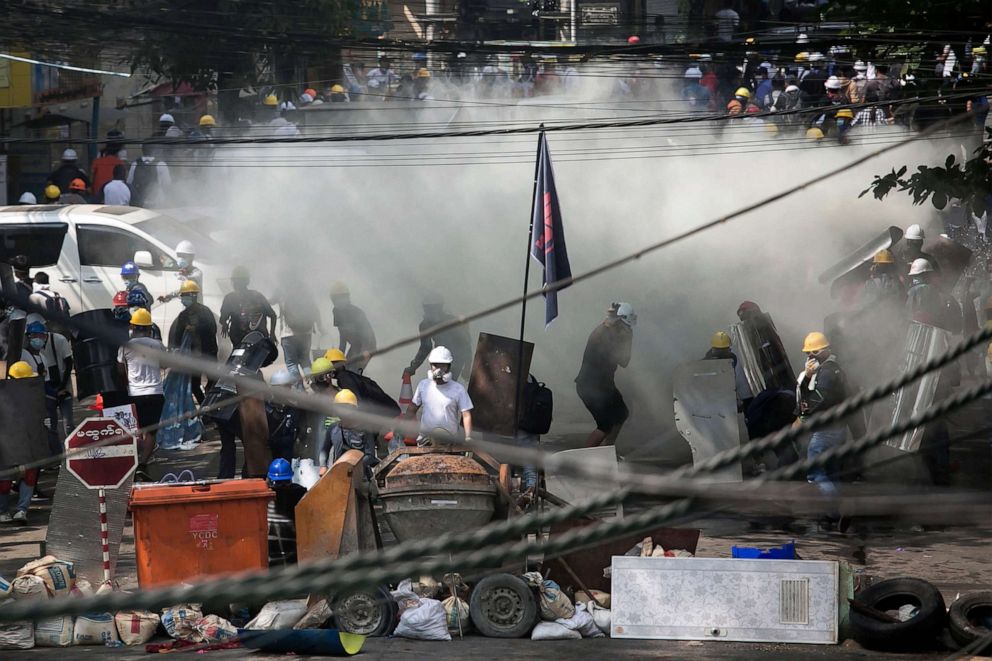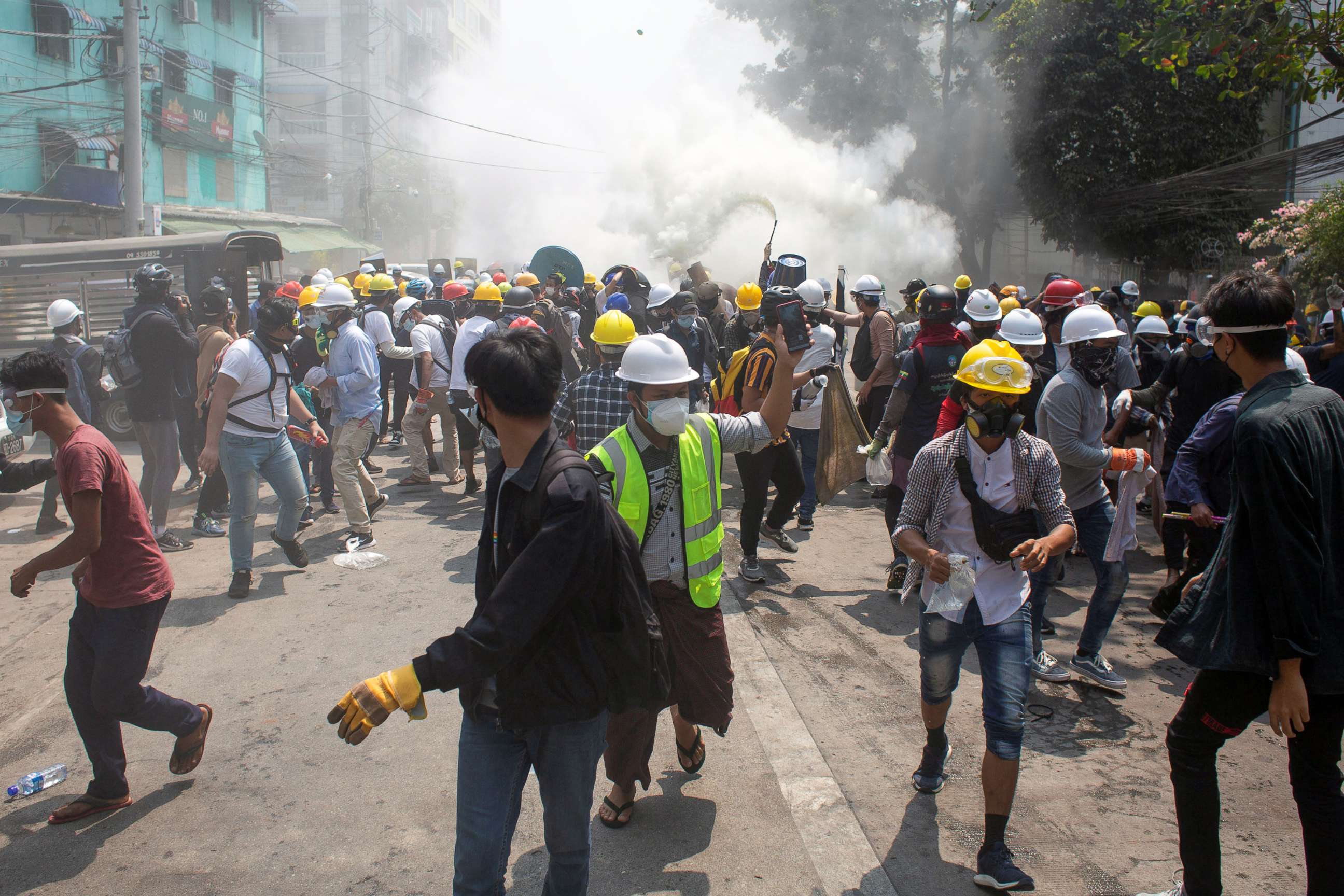Myanmar authorities kill at least 38 peaceful protesters in bloodiest day since coup
Protests have been growing in Myanmar since the military seized power on Feb. 1.
LONDON and HONG KONG -- At least 38 protesters were killed by authorities in Myanmar on Wednesday, marking the bloodiest day since the military seized power in an apparent coup last month, according to the United Nations' special envoy for Myanmar, Christine Schraner Burgener.
Peaceful demonstrations have been taking place in cities across the Southeast Asian country since its de facto leader, Aung San Suu Kyi, and other members of her National League for Democracy (NLD) party were detained by the military on Feb. 1. The protest movement has been growing and the military junta, which calls itself the State Administration Council, has become increasingly violent in its response as weeks of internet shutdowns, threats and mass arrests have not stopped thousands of people from voicing their opposition.
Schraner Burgener said she believes the junta is "very surprised" by the protests against the coup.
"Today, we have young people who lived in freedom for 10 years. They have social media and they are well organized and very determined," Schraner Burgener told reporters in New York City on Wednesday. "They don't want to go back in a dictatorship and in isolation."

Police and security forces in Myanmar are now using live ammunition on protesters. Since Feb. 1, more than 50 people have been killed there and over 1,200 others -- some of whom remain unaccounted for -- have been arbitrarily arrested and detained, mostly without any form of due process, according to Burgener.
Sunday was previously the deadliest day in Myanmar since the bloodless coup. Authorities confronted peaceful protesters in several locations across Myanmar and fired live rounds into the crowds, killing at least 18 people and wounding over 30 others, according to the Office of the United Nations High Commissioner for Human Rights, which cited "credible information" that it had received.
Despite the escalation, the United States did not announce any new actions against Myanmar's military on Wednesday.
"We are appalled and repulsed to see the horrific violence perpetrated against the people of Burma for their peaceful calls to restore civilian governance," U.S. Department of State spokesperson Ned Price said during a press briefing at the White House, using Myanmar's former name under British colonial rule. "We call on all countries to speak with one voice to condemn brutal violence by the Burmese military against its own people and to promote accountability for the military's actions that have led to the loss of life of so many people in Burma."
Price said U.S. sanctions against Myanmar's military have a "significant impact" on its "ability to wield power and influence," but that the junta has virtually ignored them as well as financial penalties from Canada and the United Kingdom. Other "policy measures" are being evaluated, both unilaterally from the U.S. and with allies and partners in the region, according to Price.
"We are not going to do anything that worsens the suffering, the humanitarian suffering of the Burmese people," he told reporters in Washington, D.C.

Schraner Burgener said she has had conversations in recent weeks with the deputy commander-in-chief of Myanmar’s armed forces, Vice-Senior Gen. Soe Win, to warn him that the military will likely face strong measures from some countries as well as isolation in retaliation for the coup.
"The answer was: 'We are used to sanctions, and we survived,'" she told reporters in New York City. "When I also warned they will go in an isolation, the answer was: 'We have to learn to walk with only few friends.'"
Myanmar was previously ruled by the military for nearly 50 years before appearing to slowly transition to democratic rule a decade ago and holding its first general elections in years in 2015, which was a landslide victory for the NLD. Suu Kyi had spent 15 years under house arrest while leading the struggle for democracy against the Burmese junta and was awarded the 1991 Nobel Peace Prize for her "nonviolent" efforts.
Suu Kyi is understood to have had a tentative shared power agreement with the military since she was named state counsellor in 2016, offering the government a veneer of democratic legitimacy as they embarked on a decade of reforms. The role of state counsellor, akin to a prime minister or a head of government, was created because Myanmar's 2008 constitution barred Suu Kyi from becoming president, since her late husband and children are foreign citizens.

The Nov. 8 general election was meant to be a referendum on Suu Kyi’s popular civilian government but her party expanded their seats in Parliament, securing a clear majority and threatening the military's tight hold on power. The constitution guarantees the military 25% of seats in Parliament and control of several key ministries.
The new civilian-led government was supposed to convene for the first time on Feb. 1 but power was instead handed over to Senior Gen. Min Aung Hlaing, commander-in-chief of Myanmar's armed forces, who is already under U.S. sanctions for his role in the military's atrocities against the Rohingya Muslim minority. An order signed by the acting president granted full authority to Hlaing to run the country and declared a state of emergency that will last for at least one year, citing widespread voter fraud in the November election.
Hlaing’s office said in a statement that the military would hold a "free and fair general election" after the state of emergency ends. Voter rolls will be checked and the nation's election commission, which last week rejected the military's allegations of voter fraud, will be "re-established," according to the statement.

Suu Kyi is still revered in Myanmar despite losing some of her international luster for her refusal to condemn the human rights against the Rohingyas. She has not been seen in public since she was ousted and is believed to be under house arrest at her residence in Myanmar's capital, Naypyidaw.
The Nobel laureate appeared in a Naypyitaw court via videoconference on Monday to face two more charges: one under a section of a colonial-era penal code prohibiting publication of information that may "cause fear or alarm" or disrupt "public tranquility," and the other under a telecommunications law stipulating licenses for equipment, relating to her alleged ownership of the walkie-talkies, one of her lawyers told Reuters.
Suu Kyi was initially charged with illegally importing six walkie-talkie radios and later charged with violating a natural disaster law by breaching COVID-19 protocols while campaigning during last year's elections.
She has her next court appearance scheduled for March 15, her lawyer told Reuters. If she is found guilty of any of the charges, the resulting prison sentence will likely overlap with the election the junta has promised would take a place in a year.
ABC News' Conor Finnegan contributed to this report.